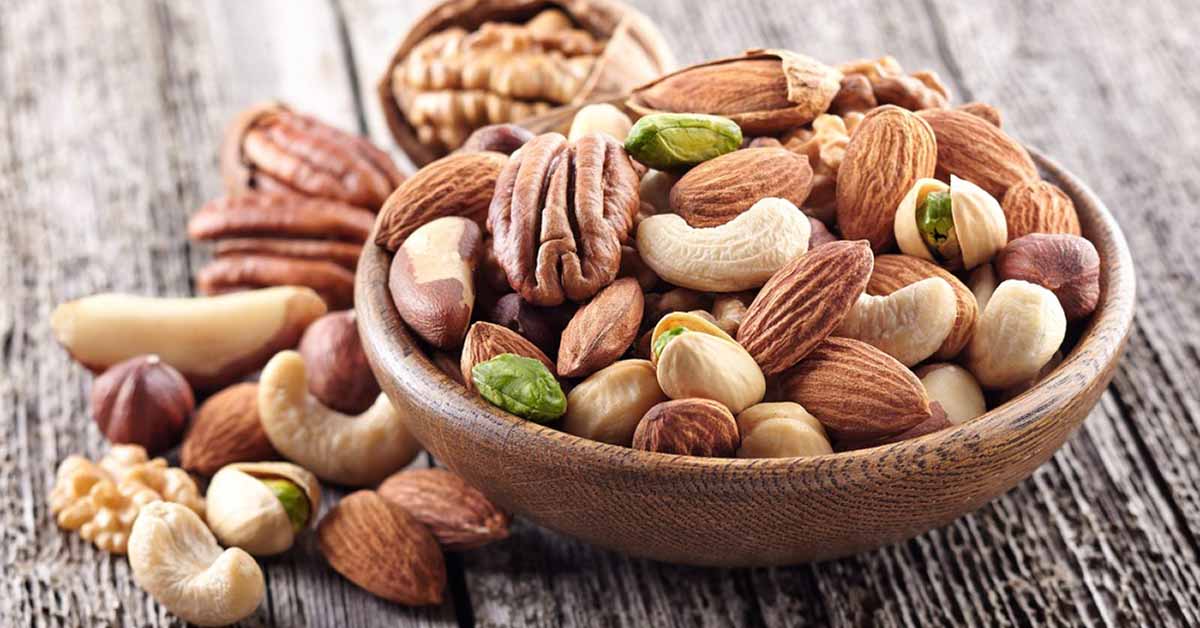ARLINGTON HEIGHTS, IL – (DECEMBER 18, 2019) – A new article in Annals of Allergy, Asthma and Immunology, the scientific journal of the American College of Allergy, Asthma and Immunology (ACAAI) shows most people allergic to peanuts can safely eat tree nuts. Nevertheless, nearly 40 percent choose voluntary avoidance of all tree nuts for a variety of reasons, the most common being the potential risk of cross contact
“The results showed that nearly 90 percent of peanut-allergic individuals in the study could potentially tolerate almonds, but 33 percent of that group preferred strict avoidance due to fear of an allergic reaction” says allergist Shahzad Mustafa, MD, ACAAI member and lead author. “The most common reason for choosing to avoid all tree nuts was to minimize the risk of cross contact. This can happen when a food is cooked with or near something that contains an allergen. Kitchen tools such as knives or spoons can also contribute to cross contact when they are used to mix multiple foods.”
Of the 258 people with peanut allergy enrolled in the study, 37 percent consumed all tree nuts, 24 percent consumed some but not all, and 39 percent consumed no tree nuts. Of the 100 people avoiding all tree nuts, 50 percent reported it was due to fear of cross contact, 16 percent said they had no desire to consume any tree nuts, 13 percent were avoiding tree nuts due to young age and 12 percent were avoiding tree nuts due to a high likelihood of being allergic.
“We found people allergic to peanut who consume foods with precautionary labeling (PAL) are more likely to choose to eat tree nuts as compared to those who don’t eat foods with PAL,” says allergist Allison Ramsey, MD, ACAAI member of the ACAAI Anaphylaxis Committee and co-author of the study. “In the study, 37 percent of those with peanut allergy consumed foods with PAL and 63 percent reported avoiding all foods with PAL.” Foods with PAL include statements such as “may contain,” “processed in a facility that also processes” or “made on equipment with.” These warnings often follow the ingredients list and are voluntarily included by manufacturers but don’t indicate if a product is safe to consume or not.
“People with peanut allergy should be aware that it may be safe to consume some, if not all tree nuts, and tree nut consumption can contribute to a nutritious diet,” says Dr. Mustafa. “In addition, our data indicated that avoiding foods with PAL may have an overly restrictive impact on the diet of people with peanut allergy. Eating foods with PAL is something people with food allergies should discuss with their allergist and take into consideration when creating their diet.”
Allergists are specially trained to test for, diagnose and treat food allergies. To find an allergist near you who can help create a personal plan to deal with your food allergies, and help you live your best life, use the ACAAI allergist locator.
About ACAAI
The ACAAI is a professional medical organization of more than 6,000 allergists-immunologists and allied health professionals, headquartered in Arlington Heights, Ill. The College fosters a culture of collaboration and congeniality in which its members work together and with others toward the common goals of patient care, education, advocacy and research. ACAAI allergists are board-certified physicians trained to diagnose allergies and asthma, administer immunotherapy, and provide patients with the best treatment outcomes. For more information and to find relief, visit AllergyandAsthmaRelief.org. Join us on Facebook, Pinterest and Twitter.






